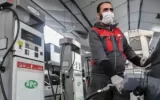Gasoline imbalance adjustment using CNG fuel

According to Energy Press, according to Ehsan Janmohammadi, we can supply 20 to 25 million liters of gasoline with CNG by using all the current capacity.
Explain about the trend of gasoline and CNG consumption, in what proportions are they?
Gasoline fuel consumption in the country has increased over the past years. According to the statistics of Iran’s National Oil Products Distribution Company, Iran’s gasoline production capacity is about 115 million liters per day. Things such as the capacity of the country’s oil refineries and facilities, the technology used in Iran’s oil centers and the amount of investment made in it play a role in the amount of gasoline produced, which the National Petroleum Products Distribution Company and the National Petroleum Products Refining and Distribution Company should declare in these fields; Also, car technology in the field of gasoline consumption and its quality are two important factors in controlling consumption.
On the other hand, unfortunately, due to various reasons such as the lack of attention of the government and the Ministry of Oil to the CNG project and the unwillingness of car manufacturers to produce gas-powered cars, the lack of a suitable price gap between gasoline and CNG, the use of old and outdated kits in the car conversion plan, and… the amount of consumption CNG is decreasing day by day and gasoline consumption is increasing. Until the expert short-term and long-term framework and programs like the early CNG development plan as a clean fuel are established, no change will be made in the process of using this clean and cheap fuel.
Are there infrastructure problems for using CNG fuel?
Considering the extensive gas supply network in Iran and the existence of this God-given blessing, it is almost impossible to imagine any technical problems or defects for the use of CNG fuel in Iran. Air pollution, large investments by the government and the private sector, and the availability of facilities and technology in the country, it is safe to say that the national CNG fuel can be revived as the country’s first fuel with the latest technology in the country’s fuel basket for passenger and heavy vehicles. Of course, this issue requires the great efforts of statesmen and the Islamic Council, which has not been seen in practice so far.
What other factors can be effective in increasing people’s willingness to use CNG fuel?
Due to the use of carbureted car technology in the last 20 years, in the market, many car owners are hesitant about the high-efficiency operation of CNG-fueled cars; But if they use up-to-date kits, the desire of the car owner increases greatly; Theoretically, due to the high octane number (above 130) and higher thermal efficiency, CNG fuel (more than gasoline fuel) is acceptable for use. Currently, except for Tehran metropolis, the number and distribution of stations in all provinces is in a favorable condition, and stations across the country are operating with a capacity of about 40%. Certainly, with the fee support from the station holders all over the country, the desire of the private sector investors to build a station if needed in any region will increase, and there is no need for the government to invest in this sector.
What do the statistics of the production of dual fuel cars say in recent years?
The approval of the Economic Council for the plan to convert 1.4 million cars for public cars for free in the past years, which has been reduced to about 900,000 cars during several stages of amendment, and until now, about 200,000 cars have been dual-fueled with this plan in the past four years. The low number of these cars indicates that the approvals are still not fully enforceable. The situation has progressed in such a way that almost the statistics of the production of dual-fuel vehicles by the country’s automobile factories has been zero percent despite all the paper agreements in the past years. We should ask the Ministry of Oil, the Energy Commission of the Islamic Council and the car manufacturers why this happened. As long as there is no legal obligation in this regard, the situation will continue in this way.
Tags:CNG
- Comments sent by you will be published after approval by site administrators.
- Comments that contain slander will not be published.
- Comments that are not in Persian or not related to the news will not be published.

Comments
Total comments : 0 Awaiting review : 0 Date: 0